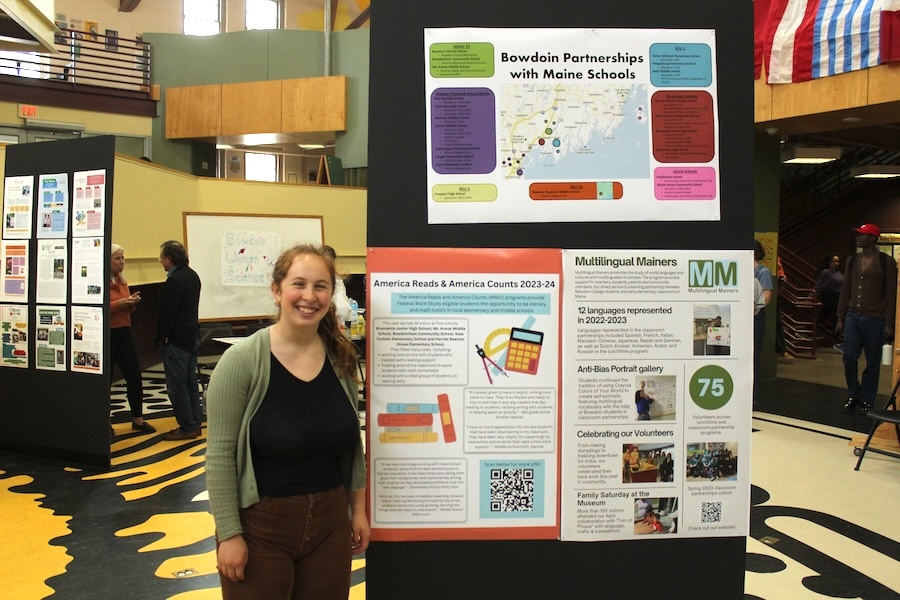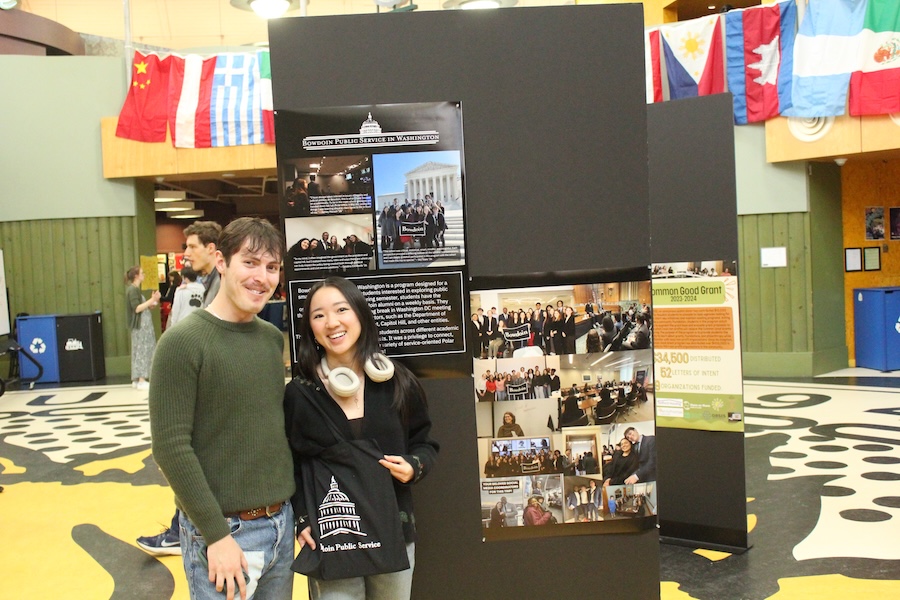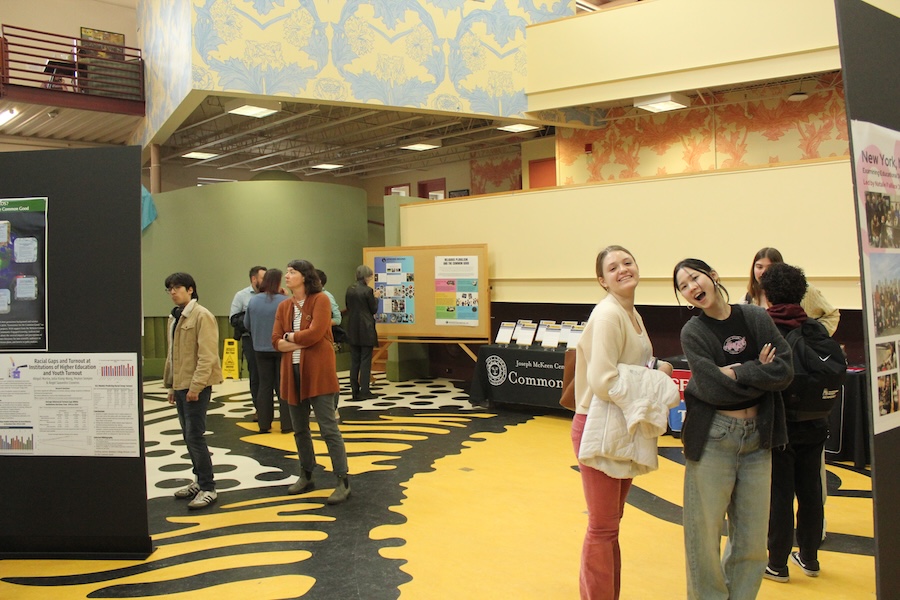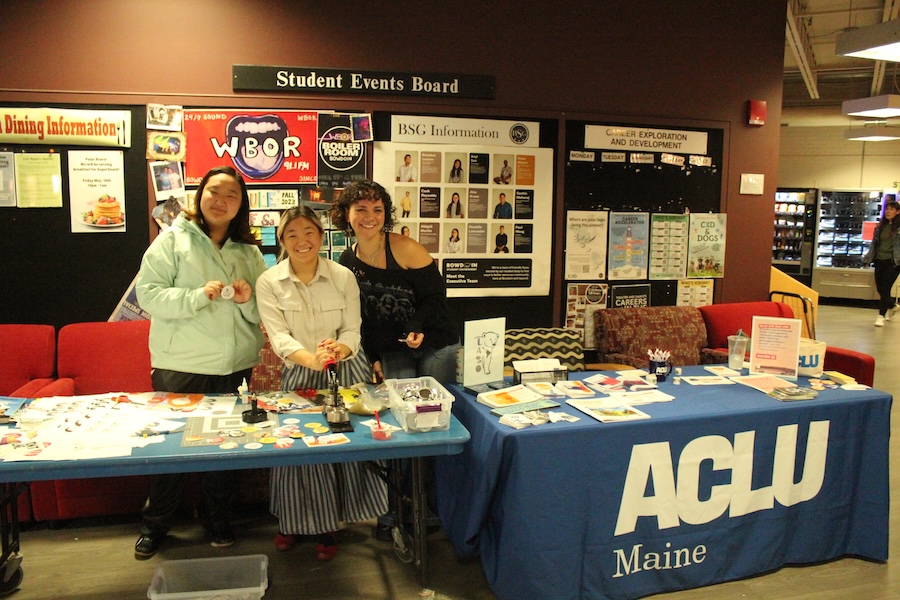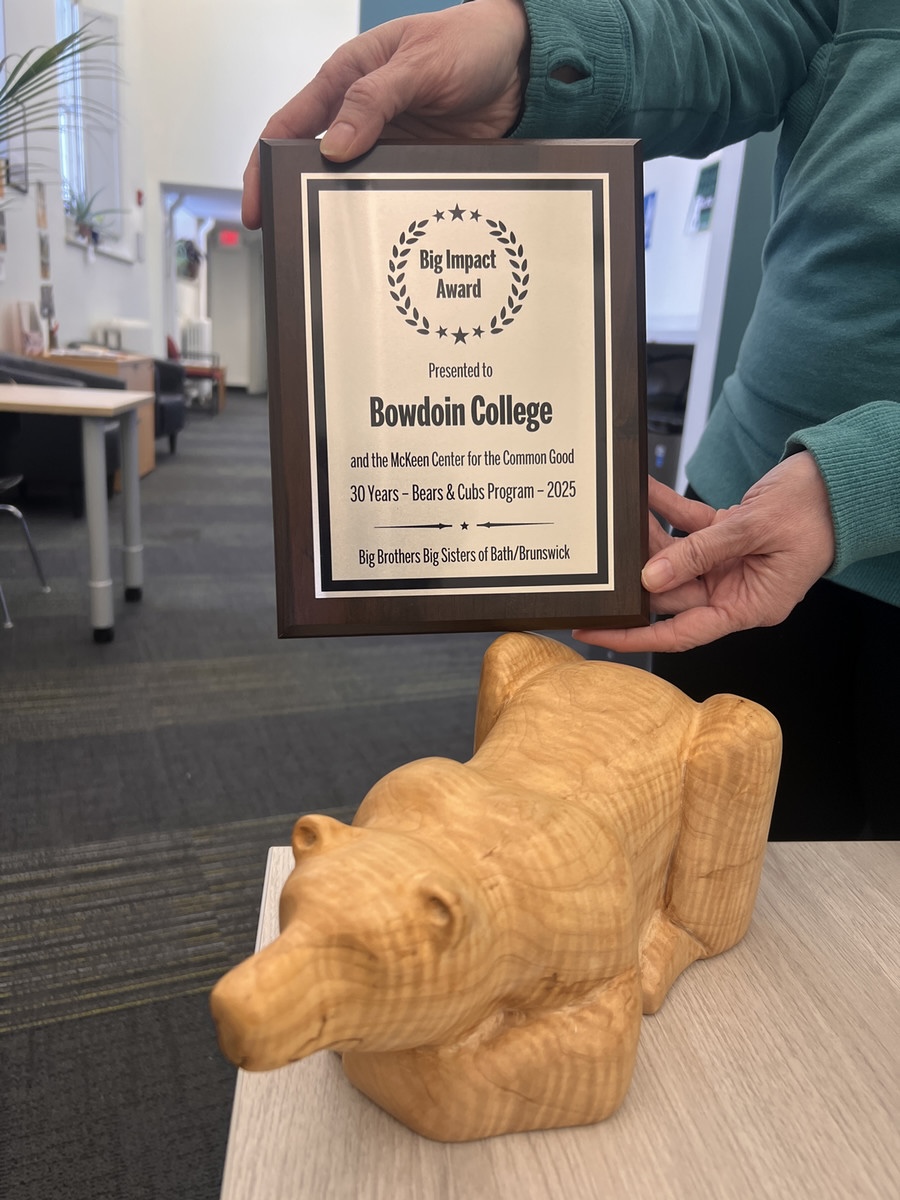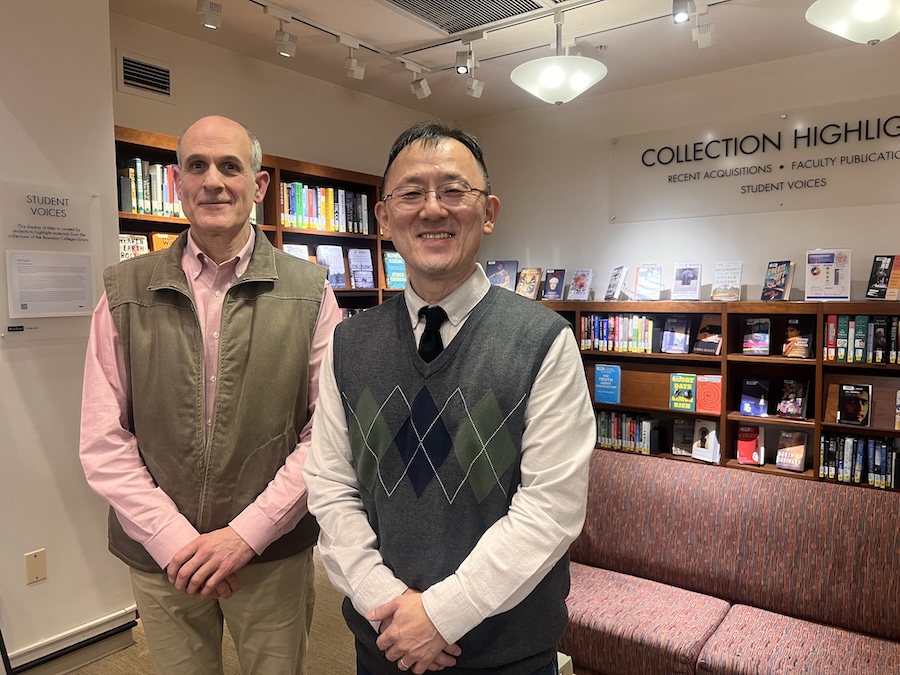Symposium Shows the Many Ways Students Engage with the Common Good
By Neiman Mocombe ’26 and Rebecca Goldfine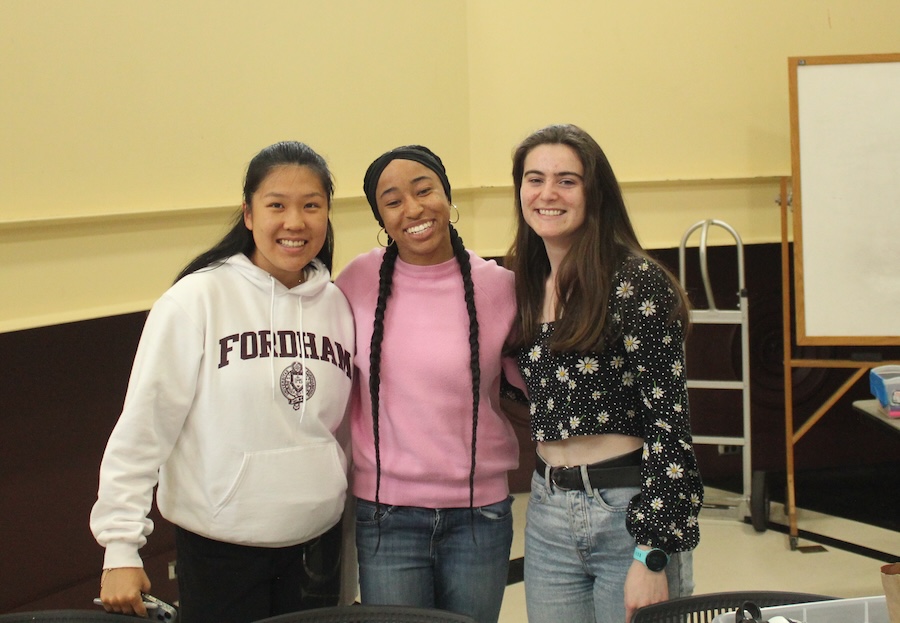
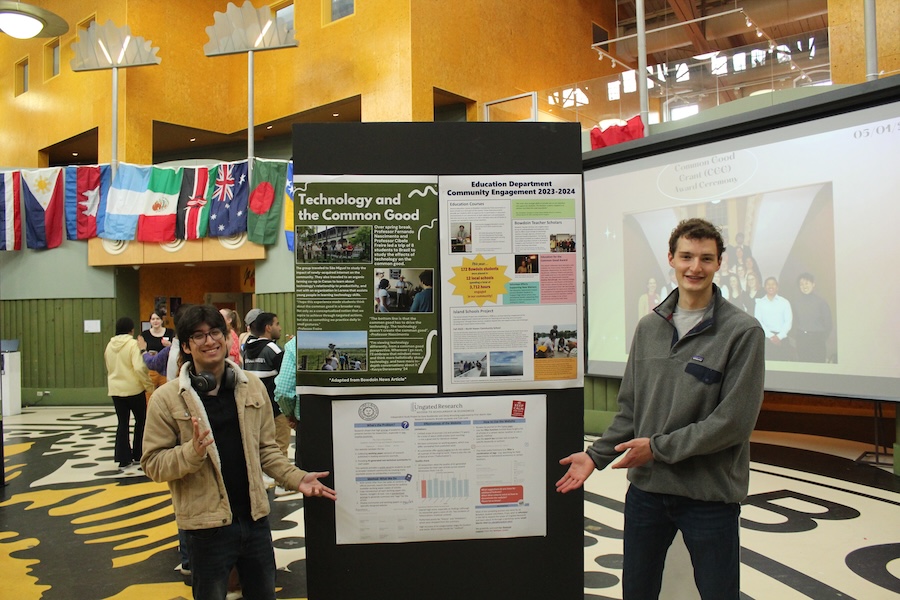
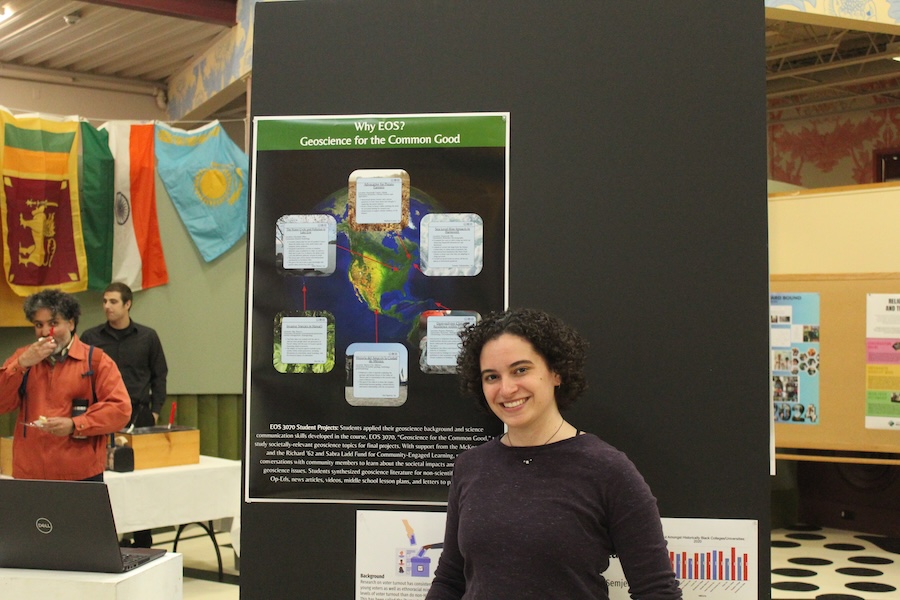
The annual symposium is an opportunity for the McKeen Center and departments across Bowdoin to celebrate a year's worth of student engagement with the common good.
With posters and demonstrations, students share what they have learned and achieved through service, classes, and research. "We strive to give Bowdoin students the tools, knowledge, and experiences necessary to be the problem solvers that the world needs today," said Sarah Seames, director of the McKeen Center.
This year's symposium featured more than eighty posters detailing all of the McKeen Center programs, including Bowdoin Votes, Bowdoin Public Service, and more than twenty student-led service groups that involved hundreds of students over the past year, said Avery Friend, McKeen Center administrative coordinator.
It also showcased other community efforts across the campus.
Devan O'Loughlin ’24, Kennedy Kirkland ’27, and Alice Fang ’27 attended the event to represent their Bowdoin Volunteer Corps group Bowdoin Women in Science, or BWISE.
- ~Eighty posters, as well as a slideshow.
- ~Twenty student-led service groups.
- Departments: McKeen Center for the Common Good, Athletics, The Bowdoin Store, Career Exploration and Development, the Rachel Lord Center for Religious and Spiritual Life, and the academic departments of education, earth and oceanographic science, economics, and government.
- Over fifty student fellowships funded through the McKeen Center and Environmental Studies.
- More than 150 community partners—organizations and nonprofits that partner with Bowdoin.
“Our main event is every week on Fridays when we volunteer with a fifth-grade class at Harriet Beecher Stowe Elementary School and teach a science lesson,” O'Loughlin said.
The work also requires that BWISE volunteers commit to a Monday night lesson planning session as well as teach every week. Explaining why she is dedicated to the group, Kirkland said she loves hanging out with "kiddos" and that she loves science. “Plus, with kids, it's amazing to see their curiosity and awe after turning sodium alginate into powder!”
Fang added, “They're always smarter than we think.”
Tyler Lenk ’26 and Brando Izquierdo ’26 stood by a poster explaining their participation in a student project—led by Zane Bookbinder ’24 and Olivia Wirsching ’24—to help make economics research more accessible across the world. The site, Ungated Research, went live two weeks ago.
“Economics scholarship, meaning research articles, is often behind paywalls in journals, which presents barriers for researchers in low-income countries,” Lenk said, “So we’re collecting prior work-in-progress versions of the same papers and putting them in one place and using AI to parse the articles and generate non-technical summaries that don't use economic jargon.”
Izquierdo said he was drawn to the project because it combined his interests with public service. “It started off with me trying to get a job as a research assistant,” he admitted, but he got really invested “when I heard the idea and realized I could use my experience in economics to provide a public good to people in countries similar to the one my parents are from.”
Adele Metres ’24 explained the poster behind her, titled "Why EOS? Geoscience for the Common Good," referring to the course taught by Associate Professor of Earth and Oceanographic Science Michèle LaVigne. Text on the display explained that “students applied their geoscience backgrounds and the science communication skills developed in the course...to socially-relevant geoscience topics.”
Students in the class wrote op-eds and news articles, made videos and middle school lesson plans, and wrote letters to the editor on topics such as sea level rise in Harpswell, the climate resilience of fisheries, the history of water in Mexico City, and the water cycle and pollution in Lake Erie.
Metres said the class showed her how much she liked both writing and lesson planning, “so maybe I’ll find a job at some point where I can do more of that!”
